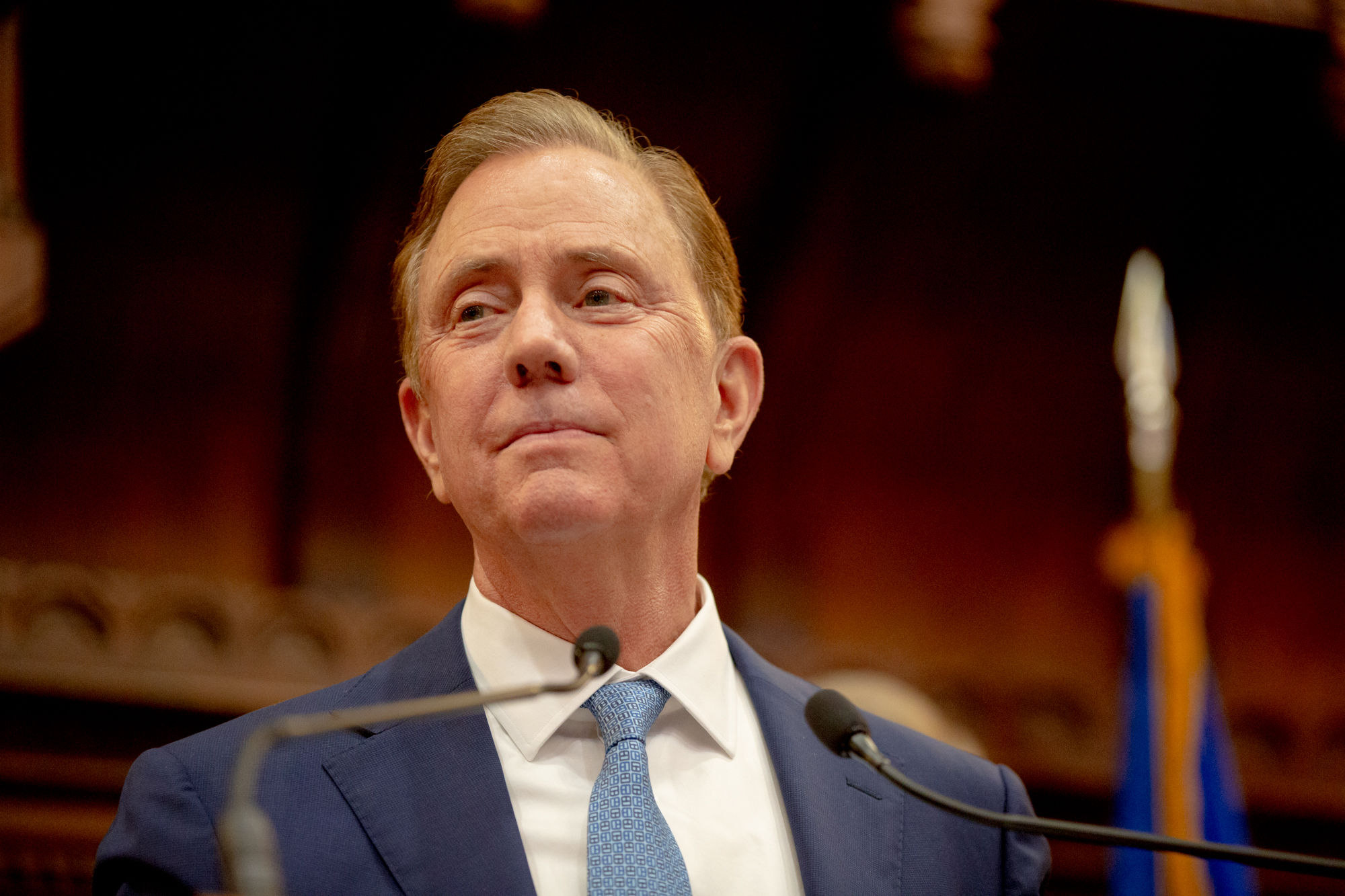
Gov. Ned Lamont unveiled plans Thursday to use $20 million in federal pandemic aid to potentially cancel billions of dollars in medical debt for thousands of Connecticut residents.
Lamont’s plan involves working with one of the nonprofit organizations that have been negotiating with hospitals to purchase medical debt at extreme discounts. Those charities then cancel the debt.
“This initiative will not only help Connecticut residents who are saddled with debt financially, but it also lifts the significant emotional toll that this type of debt has on individuals who do not have the means to get out from under such crushing debt, especially for those who are simultaneously experiencing significant medical problems,” said Lamont, who announced his proposal Thursday morning at Urban Hope Refuge Church in Hartford.
The administration will outline the initiative in greater detail on Feb. 8, when Lamont proposes his next biennial budget to the General Assembly.
But the governor would use $20 million from Connecticut’s American Rescue Plan Act allocation to contract with a nonprofit that then would work directly with local hospital systems to purchase entire portfolios of debt. There is no application process, and nonprofits typically purchase the debt owed by low- and low-to-moderate income households.
Charities performing this task in other states have acquired debt for as little as 1 cent on the dollar because hospitals generally struggle to recover most of the funds owed.
And Lamont said he hopes Connecticut’s $20 million investment could ultimately lead to $2 billion in debt being retired.
Approximately 19% of American households carry medical debt, and the median amount is about $2,000, according to the U.S. Census Bureau. This burden falls more heavily on people of color, with 27.9% of Black families and 21.7% of Latino households carrying medical debt.
About 31% of U.S. households with a member in fair or poor health have medical debt, according to census data.
The governor noted that “Several state and local governments have seen significant success at canceling medical debt for their residents using this model, and I think this is absolutely the right way we should use this COVID-recovery funding.”
The Consumer Financial Protection Bureau reported there was $88 billion in medical debt on consumer credit records as of June 2021. The total amount of medical debt in collections in the U.S. is likely higher, the agency said, since not all medical debts in collections are provided to consumer reporting companies.
“Past-due medical debt reported to consumer reporting companies can appear on a person’s credit reports and lower their credit scores,” agency officials wrote in a February 2022 report. “This may reduce their access to credit and make it harder to find a home or a job.”
A June 2022 survey by the Kaiser Family Foundation found that four in 10 adults have some form of health care debt, with most stemming from a one-time or short-term medical expense — often unexpected.
The survey also reported nearly one in five adults with health care debt think they will never be able to pay it off.
Somerville, Mass., a Boston suburb, made headlines this week when it released a proposal to use $200,000 in federal ARPA dollars to partner with RIP Medical Debt, a New York City-based charity that purchases hospital debt, NBC Boston reported.
Lamont added that alleviating this debt “will put millions of dollars back into the Connecticut economy and provide an economic stimulus to local communities.”
Source link
